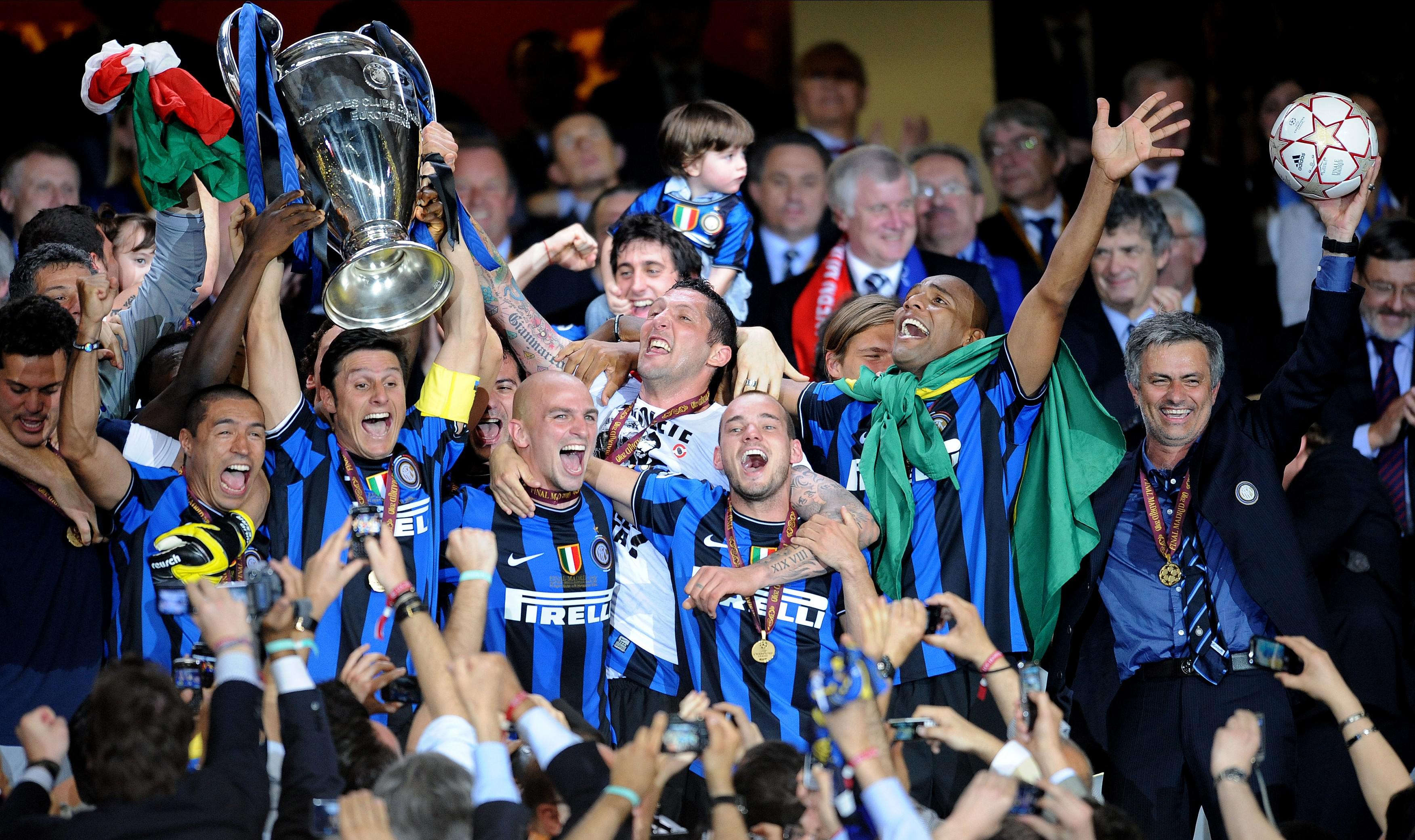Son Heung-min's incredible journey to the top: how the Tottenham star made it
Tottenham Hotspur forward Son Heung-min was already an icon in South Korea, but Son-mania has now gone global. From failed trials at Portsmouth to idol status in Seoul, this is the in-depth story of the greatest Asian footballer of all time...
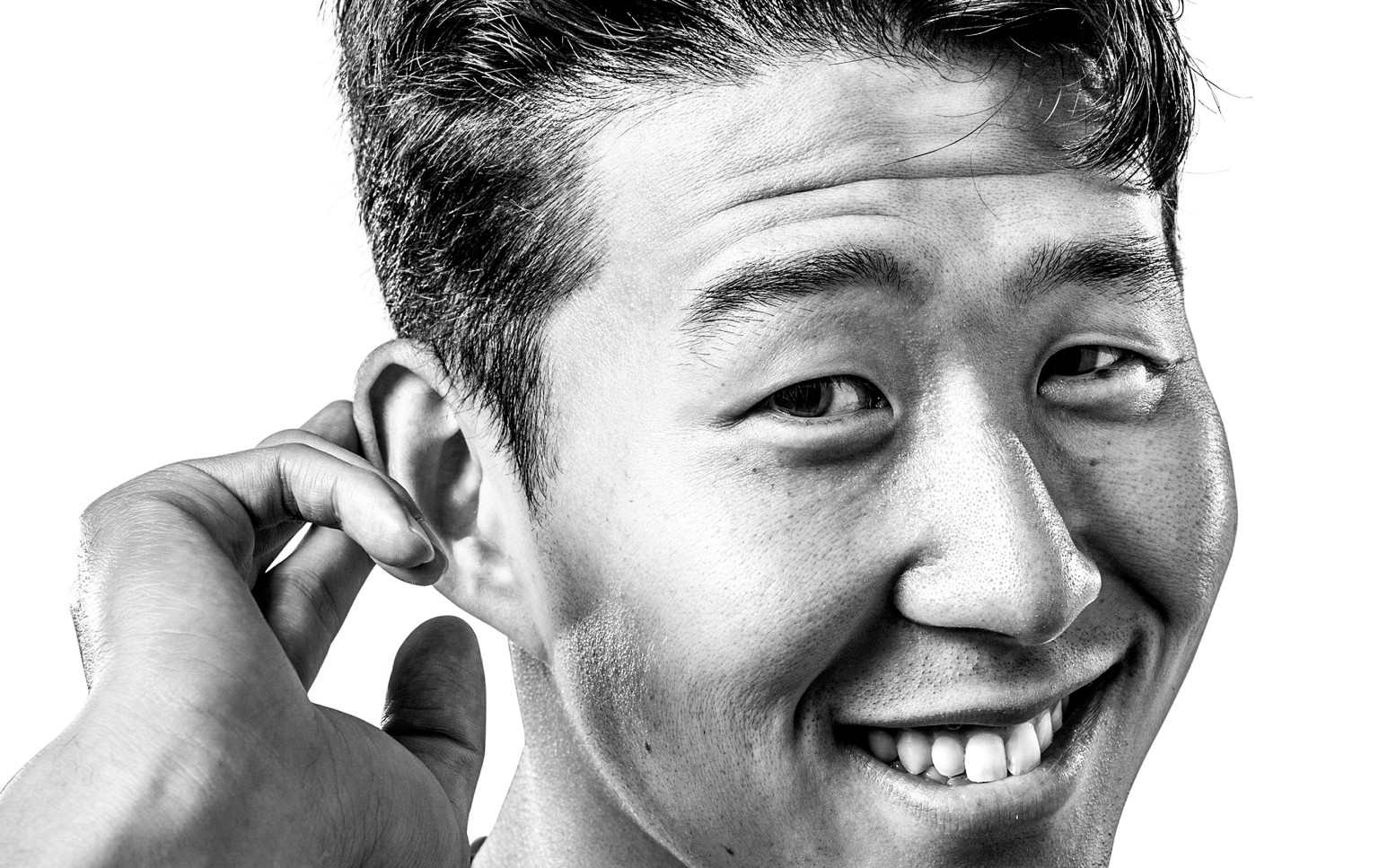
This feature first appeared in the March 2021 issue of FourFourTwo magazine. Subscribe now!
In the spring of 2020, a shaven-headed man crouched holding an M16 assault rifle in Moseulpo, on the island of Jeju. Seventy years earlier, his countrymen had trained at the very same base, preparing for the most significant battle of the Korean War.
Supported by forces from China and the Soviet Union, North Korea had swept south through the Korean peninsula in 1950, capturing all but a tiny part of the mainland. The volcanic island of Jeju, 80 miles further south, was one of the few places that South Korea had left. From there, troops sailed west of Seoul to Incheon, where they combined with British and American forces for the battle that turned the conflict. It paved the way for the modern South Korea.
Now, one of South Korea’s biggest stars had come to Jeju to serve his country, like so many of his predecessors. In keeping with tradition, Son Heung-min had shaved off his trademark locks for the occasion, as he learned to fire a gun, went on a 30km march and was exposed to tear gas, in an exercise preparing him to combat chemical weapons.
For years, Son’s compulsory military service had been a controversial topic in South Korea, a cloud hanging over his head. It was uncertain when he would be called up to the army, and for how long. Training could have taken as long as 21 months – it threatened to scupper his entire football career, and he knew it.
But now, just as Tottenham were preparing to emerge from lockdown back in England, Son’s military service was done. It had been the only potential impediment to his relentless progress as a Premier League player, and it was gone.
From that moment onwards, all he’s had to worry about is football. In the nine months since then, the Korean has produced the greatest form of his career and further established himself as one of the best players in the world.
Get FourFourTwo Newsletter
The best features, fun and footballing quizzes, straight to your inbox every week.
And all it took was four hours doing keepie-uppies with his dad.
Father and Son
The forward’s relentless progress owes much to his father, and the mentality instilled in him from an early age. Son Woong-jung – nicknamed ‘Dad Heung-min’ by some fans – was a footballer who played as a forward for South Korea’s B team, before injury ended his career at 28.
Son Heung-min was born two years later, growing up in the city of Chuncheon, 50 miles north-east of Seoul, with his older brother. Both ambitious to become footballers, their father told them that a mastery of technical skills was the path to success. His training methods were stern and demanding, reaching obsessive levels on a dirt pitch near their home where they would practise every single day.
Son would have to juggle the ball for three laps of the pitch – one with the left foot, one with the right, then one with both. If he dropped the ball at any point, he had to start again from the first lap. Afraid of his father, he never dared disobey – a passer-by once threatened to call the police after witnessing Son receive a fierce tirade from his dad during training.
On another occasion, after the brothers got into a quarrel at home, their father responded with a special kind of punishment. “He gave us four hours of keepie-uppies,” Son revealed of that day, when he was 10 years old. “After two hours, you see the floor like a rollercoaster – there’s only one ball, but you see three.” Son didn’t drop the ball once. “It was about focus,” he said.
Such extreme training paid off – Son joined the academy at FC Seoul and received a call-up for South Korea’s under-15s team.
“He wasn’t considered one of the best players in that age group, but as soon as I saw his skills in the first training session, I thought, ‘Hey, how did I not hear about this guy’?” explains his U15s team-mate Won Chang-yeon, a defender who has since become an eSports star.
“He was amazing. One thing I remember that day was his ability to shoot with both feet – his shooting was immensely good. Once, I tried to block his shot, but ended up just getting out of the way because the power of it scared me so much. It was like a baseball flying off a bat. He was very slim, but his thighs were unbelievably thick and he worked harder than anybody else.”
The difficult first season
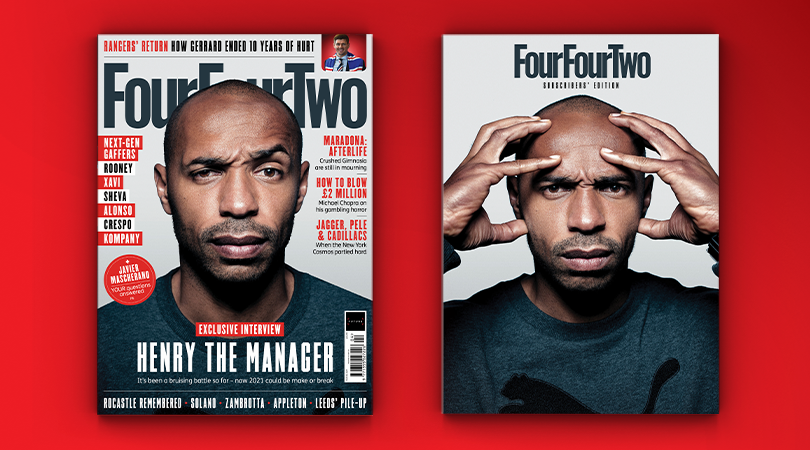
IN THE MAG Thierry Henry exclusive! Plus Rangers, Rocastle, Mascherano, Maradona, Chopra, Appleton and more
After missing out on Son at Southampton, Pochettino had the player he wanted, at the start of his second campaign as Spurs boss. Quickly, Son had a new best friend, too.
“From the first day we had a special connection, because we could speak German together,” explains Austrian defender Kevin Wimmer, who’d joined Tottenham from Köln three months earlier. “His English wasn’t the best at first, although he improved quickly – he had lessons three times a week. It was nice for him that he could speak German with me, though, and we spent so much time together.
“After training we’d go to the gym or swimming pool, or play on the PlayStation at the training ground – usually FIFA. We’d go and get food together, and we also had a WhatsApp group with other players from the team, so we’d play Call of Duty at home. We became close friends and still are – we’re in touch a lot on the phone or FaceTime.
“He’s such a down to earth guy – he doesn’t have to be the loudest in the room, but he didn’t need long to settle at Tottenham because he’s the kind of person who everyone likes. He puts you straight into
a good mood because he’s always happy. He’s serious on the pitch, but if there’s room for some fun, he lifts everyone with so much positive energy. With him, you always have something to laugh about. He’s not just important as a player, but as a character for a team, too.”
Ex-Spurs midfielder Ryan Mason concurs. “If you were to describe a professional footballer, he ticks all the boxes,” he tells FFT. “Everyone absolutely loved him at the training ground. He was so hard working. You’ve never heard anything about him having a negative attitude, because he’s a consummate professional.
“He’s humble as well, even though he’s the David Beckham of South Korea and Asia. South Korean fans started arriving very quickly, within a matter of days of him signing. I’m sure some of them jumped on the first flight over! You’d come out of the training ground every day, and it shocked me how many South Koreans were there – consistently, in the rain, in the wind. Whatever the weather, there would be a bunch of them, all waiting for Sonny.”
His arrival brought a fleet of South Korean journalists, too. “There’d be at least five of us at every Tottenham match, sometimes 10,” says Lee Sung-mo, who began covering Son’s Spurs career for Sports Seoul and Naver. “We’d interview him after most games. He’d give his time to the Korean media – we were very thankful for that.”
There were bright moments during that first campaign – his first two home appearances brought a Europa League brace against Qarabag, then the winner against Crystal Palace. But he started only 13 league matches, netting just four goals in the top tier. Spurs were challenging Leicester for the title, so forcing his way into the first XI was difficult, while still adapting to the English game.
“I remember in January or February, he wasn’t playing much and he was having his hardest moment at Spurs,” says Lee. “I worried about him, so after one game I waited for him – not to ask questions, just to say some nice words to him, as a South Korean. When he walked past, I asked, ‘Are you OK?’ He smiled and said, ‘Don’t worry, I’m OK’. Even in his hardest period, he still had confidence in himself. In that moment, I felt, ‘This guy will be OK’. He was a shy guy then, a mild person off the pitch, but he has a strong confidence in himself. He’s always had that.”
That confidence was tested on the final day of the season, though, as Tottenham lost 5-1 at Newcastle, slipping to third behind Arsenal. Son was substituted at half-time, and seriously considered giving up on the Premier League that summer: Wolfsburg were ready to take him back to Germany.
A heart-to-heart with Pochettino convinced him to remain at White Hart Lane. “It was his dream to come to the Premier League and he wanted to stay, but it was important that the manager spoke to him and he knew that Pochettino was still a big fan of his,” says Wimmer. “The manager gave him a good feeling that he was still important.”
In 2008, Son was invited to take part in a Korean FA youth project, giving 16-year-old prospects the chance to play in Germany for a year. Son joined Hamburg, alongside fellow youngsters Kim Min-hyeok and Kim Jong-pil.
“He told me he was enjoying it, and that he’d always go to bed early at night to look after his body,” adds Won. “Kim Jong-pil told me that Son’s dedication to football was absurd.”
Son’s two compatriots returned to South Korea after a year, going on to have club careers in Japan. Son wasn’t initially offered a contract by Hamburg either so, eager to forge a career in Europe, had trials with Premier League clubs Blackburn and Portsmouth. He didn’t enjoy his maiden venture into English football.
“I couldn’t speak the language, I didn’t know a word, I was on my own and I was scared,” he later said. “My first memory of England was a bad one.”
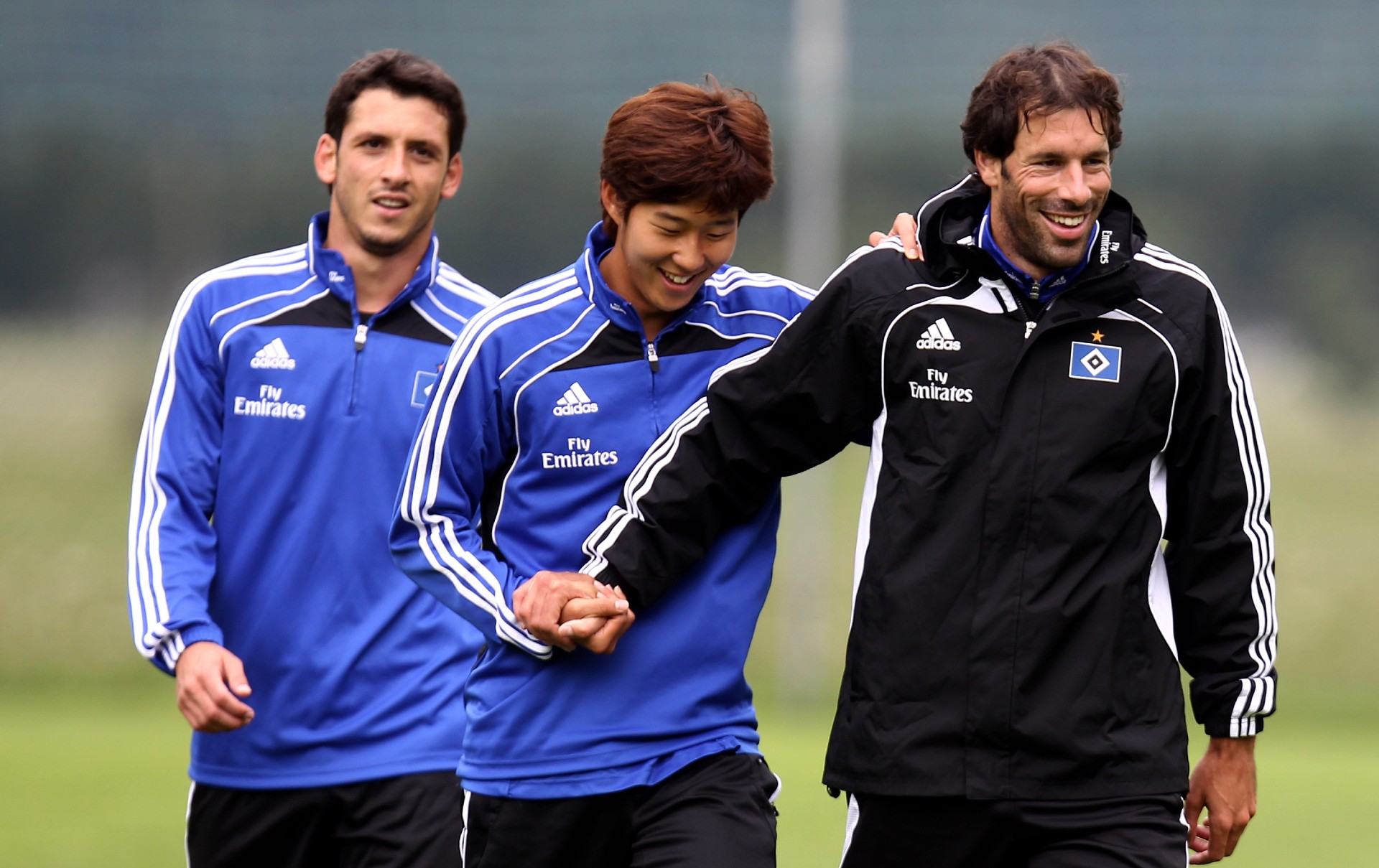
When Son impressed at the 2009 U17 World Cup, netting three goals as South Korea reached the last eight in Nigeria, Hamburg changed their minds and offered him a contract. He opted against the Premier League and returned to Germany, where he’d already started to pick up the language – helped by watching countless dubbed episodes of SpongeBob SquarePants.
As it turned out, it was against English opposition that he started to make his name. Just a month after Son turned 18, Hamburg hosted Premier League champions Chelsea in pre-season, in front of 47,000 supporters. Son came on as a late substitute for 34-year-old Ruud van Nistelrooy and panicked John Terry with his pace, forcing the defender into an error before darting past Ricardo Carvalho and firing home the winner. He had made two of the best centre-backs in the world look like a couple of fools.
“From day one, we could see he had a lot of quality,” recalls former Brazil star Ze Roberto, who played alongside Son that day. “The first thing that stood out for me was his finishing skills, even from outside the penalty area. He used to do so many finishing sessions – he stayed after training to practise his shooting with Van Nistelrooy. They always practised together and even had bets about who would score more goals – whoever lost had to serve their team-mate at the next meal!
“Very few young players had Son’s mentality – he was always willing to learn and improve. That really grabbed my attention. Asian players had always been known for their technique, but not their strength. He had both and he read the game well, too. It was clear he had a great future ahead of him. He had everything to be a football phenomenon.”
On his league debut in 2010, Son became Hamburg’s youngest ever Bundesliga scorer, racing clear at FC Köln and calmly lobbing the ball over the goalkeeper, before rolling it into the empty net. The goal was celebrated back in his homeland – the South Korean equivalent of Clive Tyldesley may not have copied the commentary word for word, but it was their ‘Remember the name, Wayne Rooney!’ moment.
“Every South Korean felt this was the beginning of a new star,” says football writer Lee Sung-mo. “When Son made his debut for Hamburg, Park Ji-sung had been at Manchester United for five years and was beginning to come down from his peak. South Korean people needed the next star who would succeed him, then Son scored his fantastic debut goal in the Bundesliga. It was perfect timing.”
Son made the South Korea squad for January 2011’s Asian Cup but was only ever used as a substitute in Qatar and wasn’t as impressive when he returned to Hamburg for the final months of the season. His dad attributed it to overeating while he was at the Asian Cup – where the Taegeuk Warriors lost on penalties to Japan in the semi-finals – and put Son through three training sessions a day for the full summer break to get him back to peak fitness. Every single day, Son would have to fire off 1,000 shots.
It reaped rewards. He smashed 18 goals for Hamburg in pre-season and played ever more regularly in the Bundesliga, finding the net twice during the run-in to help save the club from relegation.
In 2012-13, Son was joined in Germany by his brother, who played in the fifth tier with SV Halstenbek-Rellingen but later retired and now coaches at the family’s football academy in Chuncheon. “He just had no talent,” was dad’s honest, and brutal, assessment. Son had greater success that season, scoring 12 times in 34 appearances – four goals came in two wins against Jurgen Klopp’s Borussia Dortmund, including a brace in a 4-1 hammering at the Westfalenstadion.
Other clubs took notice. Tottenham were reported to be leading the chase at one stage, while Manchester United and Chelsea expressed an interest; Mauricio Pochettino also tried to take him to Southampton. In the end, Son chose between BVB and Bayer Leverkusen. “I wanted to stay in the Bundesliga, but I felt Dortmund would rotate me more – that’s why I chose Leverkusen,” explained the 20-year-old.
He was following in the footsteps of South Korea icon Cha Bum-kun, who had starred for Leverkusen in the 1980s. Son soon netted his first senior hat-trick – against Hamburg.
Son Heung-min was a serious problem before he came to the Premier League 🔥🔵 Hamburg🔴 Leverkusen🇩🇪 165 games⚽️ 49 goals🅰️ 14 assists📺 The Bundesliga returns live to BT Sport from Saturday 16th May pic.twitter.com/6JmOgKk8xAMay 11, 2020
“We won 5-3, and he was just too fast for them,” remembers former Leverkusen team-mate Simon Rolfes, now the club’s sporting director. “He was a good player with lots of potential, although not yet the finished article. He didn’t combine so much – he was more of a dribbler. As a midfielder, I tried to give him the right passes so he could use his speed. He’d play on the left, come inside on his right foot and try to put the ball in the far corner. He really practised that a lot.”
Son became so precise at such shots that Bayer created a set-piece routine for him – it produced one of his first Champions League goals, at Zenit Saint Petersburg in November 2014. Instead of whipping the ball into the area from 40 yards out, a short free-kick was rolled to the edge of the box, where Karim Bellarabi laid the ball back for Son to curl home first time from 25 yards. It was a daring routine to pull off, but put Leverkusen on course for victory – sealed when Son raced clear to score a second.
“That free-kick at Zenit was a really nice goal, and he scored at home to Benfica, too,” Rolfes tells FFT. “You could see that he could compete in the Champions League.”
After netting 12 goals in his first season for Leverkusen, and 17 a year later, Tottenham made their move in the summer of 2015. Son was coming back to England – this time, for £22 million.
Cheers, Son's crying
Before he had returned for his second season in north London, Son sat distraught in the middle of a pitch in Belo Horizonte, tears streaming down his face. In the ground where Brazil had lost 7-1 to Germany two years earlier, South Korea had just been beaten 1-0 by Honduras in the quarter-finals of the Olympic Games.
Spurs had allowed the 24-year-old to miss the start of the 2016-17 Premier League season and go to the Olympics as an overage player, knowing that success for Son could benefit them as well. He had been unable to prevent South Korea from going out in the group stage of the 2014 World Cup, but his country were medal contenders ahead of the Rio Olympics, having bagged bronze at London 2012. Back then, Son had opted not to compete, focused as he was on continuing to establish himself at Hamburg.
As time went on, the prospect of military service began to loom ever larger.
With South Korea still technically at war with their neighbours, army training remains compulsory for every adult male – and it must begin by the age of 28. Military service takes 21 months – a major issue for a player in the middle of a football career – but exemptions had previously been granted to those who achieved significant things for the country.
Park Ji-sung was permitted to do a fast-track course after helping South Korea reach the 2002 World Cup semis, while ex-Newcastle midfielder Ki Sung-yueng was similarly accommodated after winning an Olympic medal in 2012. Former Arsenal striker Park Chu-young saw his reputation suffer in his homeland, though, after postponing military service on a technicality, thanks to a long-term residency in Monaco.
Son hoped to resolve his predicament by helping South Korea claim gold at the 2014 Asian Games, but Leverkusen refused to release him for the mid-season event. The 2016 Olympics was another opportunity that had come and gone, and his 28th birthday was drawing closer.
He knew he couldn’t afford to lose two years of his career, but tried to avoid talking about the situation in public. “Military issues are really sensitive in South Korea,” explains Lee Sung-mo. “Many fans wanted the government to give Son an exemption, but there was an argument between them and the people who were against it.”
Son’s disappointment in Brazil was for sporting reasons, too. It wasn’t the first time he had cried for his country, and it wouldn’t be the last. He had wept after the shootout loss to Japan at the 2011 Asian Cup and after their World Cup elimination in 2014. He would do the same at the 2018 World Cup, breaking down when South Korea’s president visited the dressing room and tried to console him.
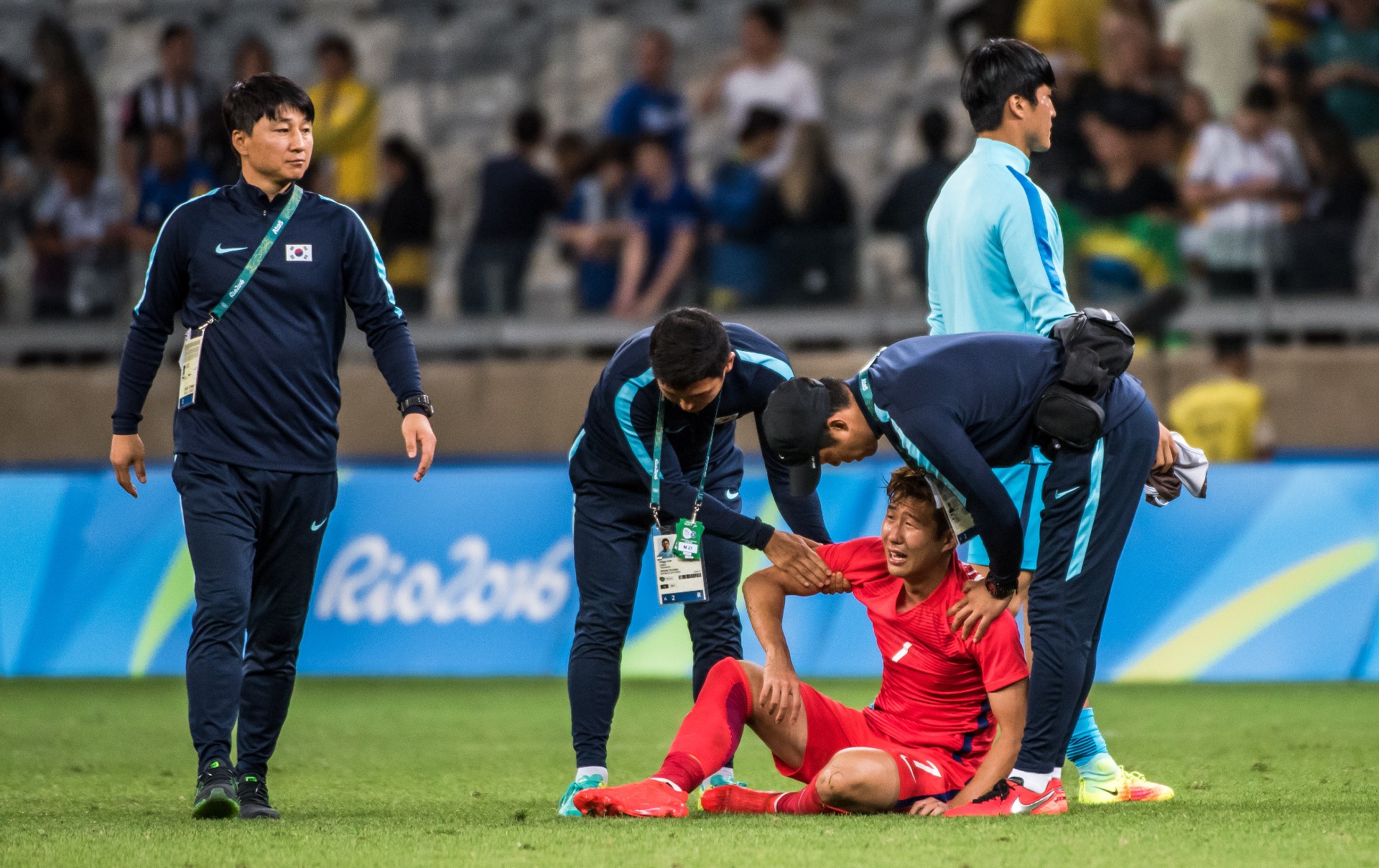
Such emotion has only endeared him further to the people of South Korea.
“The fans’ attitude towards Park Ji-sung and Son Heung-min is 100 per cent different,” states Lee. “I always thought Park was like an older brother to us. When Park started playing for Manchester United, European football became a national sport for South Korean people – not as many people followed it until then. Five years later, Son made his debut, he was a teenager and supporters felt like he was a younger brother – many Koreans call him ‘our Heung’. That’s part of the reason why people adore him so much.
“It’s also a cultural thing in South Korea – the pride of the country is very important. When you go to Spurs’ stadium, or when they played at Wembley, there were a lot of South Korean flags, because Son is the person who gives pride to the country. Every time Son scores, South Korean people feel proud. Also, he’s a happy, good-looking guy. A lot of girls call him ‘my future husband’, even though his father has said – and he has said also – that he won’t marry until after his career, to focus on football. Son and the K-pop band BTS are the biggest South Korean celebrities right now.”
Former Spurs defender Kevin Wimmer witnessed that first hand when visiting the country on holiday with Son. The man himself had always tried to play down his fame – but Son’s parents, who live with him in north London, knew otherwise.
“Before I went to South Korea, his parents said, ‘He’s very famous there,’” remembers the Austrian. “Sonny always kept telling me, ‘No, it’s not so bad’ – because you’d never hear him say something to show you he’s a big star.
“Then we arrived there and it was crazy. If you don’t see it with your own eyes, you can’t imagine it. There were so many camera crews at the airport just for him and all the people were going crazy when they saw him, like he was a rock star. We drove through the city and he was on the giant screens for Adidas, LG, as the model for these big brands. When we went to a restaurant, we ate in private because otherwise he wouldn’t be able to eat properly – if anyone sees him, they go mad.
“He always had a hat and face mask on when we walked around, so people didn’t recognise him immediately, but they still recognised him and went crazy. It was unbelievable to see – I thought, ‘Oh my God, I can’t believe what you told me before!’ But he’d never be impolite to any of those people. He always had a picture, even if it took him ages.”
Son’s popularity has continued to soar as he’s grown in prominence at Spurs. In his second campaign at the club, he scored 21 goals in all competitions as Tottenham came second – their highest finish for 54 years. Early that season, he became the first Asian to scoop a Premier League Player of the Month award – then won it again in April.
The teething problems of his first term in England were well and truly behind him. In 2017-18 he hit 18 goals and returned to haunt Borussia Dortmund – scoring home and away against them in the Champions League, as Spurs won their group ahead of Real Madrid.
While South Korea’s 2018 World Cup hopes disappeared after only two games, Son scored one of the goals of the tournament in defeat to Sweden, then netted in the shock win that eliminated Germany in their last group match. It was his first competitive match as national captain, an honour he’s held ever since.
Calm in the chaos
Three months later, Son led his country to glory and finally earned his military exemption. The moment he has described as the greatest of his career took place in Cibinong, just outside the Indonesian capital of Jakarta. Son set up both goals as South Korea beat Japan in the final of the 2018 Asian Games, before racing around the pitch in joy. Not only had he guided his nation to gold, it meant he would have to serve the army for just three weeks, rather than 21 months.
Again, Spurs had allowed him to miss the first month of the season and participate as an overage player. For some time, Son had stressed the importance of the tournament to his international team-mates.
“My close friend Hwang Hee-chan played with Son at the World Cup, and they spent time together afterwards,” says Hwang In-beom, part of that Asian Games squad as a 21-year-old. “I was talking to him on the phone one day, and he told me he’d just got out of the sauna with Son. He said, ‘Here, talk to him.’ That was the first time I’d ever spoken to Son – I was nervous, but he said, ‘Hey, stay in shape, we absolutely have to win the Asian Games.’ His words motivated me.”
Hwang has since become a regular with South Korea and watched further evidence of Son’s captaincy skills.
“When a young player joins the national team, he approaches them first,” he says. “It reminds me of when I first met him and he treated me so nicely. Before matches, he’s always talking to players. Then once the game starts, we can see how hard he tries. He leads by example.”
That 2018-19 season, Son scored the first goal at Spurs’ new stadium, before his finest Champions League moment to date. He had already notched against Dortmund again in the last 16, then bagged the winner in the first leg of the quarter-finals against Manchester City, when he headed to the Etihad Stadium for the second leg. Seven minutes in, City were 1-0 up through Raheem Sterling’s strike and looked set to take control. Son turned the match on its head – seizing on a loose ball to score an instant equaliser, before his stunning finish put Tottenham 2-1 up just three minutes later.
“It was a chaotic game, but he was able to slow it down and act as if there was nothing riding on it,” Ryan Mason tells FFT. “It’s very tough to do that at the highest level – that’s what separates the good players from the world class. Sonny is world class.”
Lee Sung-mo remembers what it was like to be there at the Etihad that evening. “When he scored his first goal, the City supporters were like, ‘Uh oh, but it’s OK, we can still do it,’” he says. “When he scored again straight after, there was absolute silence. This was against the top team in the Premier League, against the legendary Pep Guardiola, and a South Korean player had scored twice in three minutes. Inside, I wanted to scream, but I was surrounded by thousands of City fans – I thought, ‘If I scream now, I will die!’
“There has always been a discussion about who is the greatest ever South Korean player – there’s Park, Son and Cha Bum-kun. Until then, if someone asked me, I said Park. But I changed my opinion that night – I thought, ‘Now Son has overtaken him’. I’ve interviewed Park many times, and he also says that Son has now surpassed him. I think he’s the best Asian footballer ever. When you think about the great Asian players, most have been great team members – unsung heroes like Park. But Son is a game changer – he can destroy an opponent all by himself. He’s showing that an Asian player can be one of the best in the world.”
Spurs went on to their first Champions League final – even if it ended in tears for Son once again, with defeat to Liverpool in Madrid. That year, he was nominated for the Ballon d’Or – coming 22nd, the highest ever ranking for an Asian player.
However, it would also be a year that produced the unexpected: three red cards in the space of 17 Premier League appearances. Dismissed for pushing Jefferson Lerma to the floor at Bournemouth in April, Son was then shown a red card for a foul on Andre Gomes at Everton in November of the new season, which inadvertently resulted in the Portugal midfielder suffering a horrific ankle fracture and dislocation. The injury left Son distraught and instantly apologetic – his suspension was rescinded after it was ruled that the tackle itself was not worthy of a red.
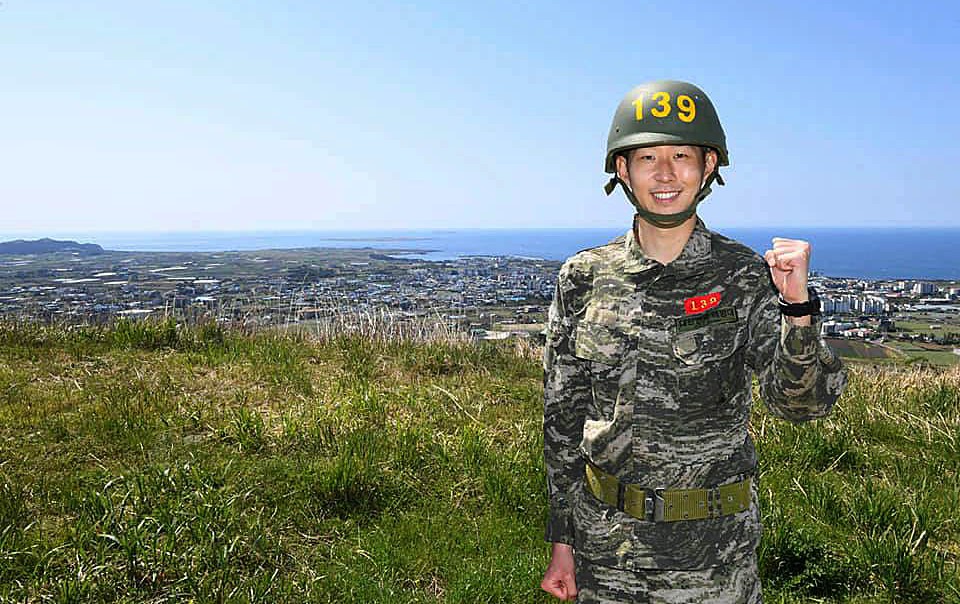
A month later, the South Korean was sent off again for raising a boot into the ribs of Chelsea’s Antonio Rudiger – a decision Son insisted was harsh. “I think he was a bit unlucky – he’s definitely not normally a player who would get a red card,” says Kevin Wimmer, although Son was once dismissed for violent conduct at Leverkusen, and also received his marching orders in a youth game for Hamburg. “The guy kicked me twice, so I got up and kicked him,” Son recalled of that incident. “It’s OK to smile and be nice, but I want to win.”
With such an ethos, it’s no surprise that he’s worked well under Jose Mourinho, who took over as Tottenham boss just before that Chelsea red card in December 2019. The Portuguese coach quickly nicknamed him ‘Sonaldo Nazario’ after the South Korean scored a fantastic solo goal against Burnley in the same month, running from the edge of his own penalty area. It earned him FIFA’s prestigious Puskas Award for the greatest strike of the year.
BREAKING: Son Heung-min has won the Puskas Award at the FIFA Best Awards with his solo strike v Burnley pic.twitter.com/tzoUV5d3dRDecember 17, 2020
“I was really delighted when he won the Puskas Award – it was such a beautiful goal,” says Ze Roberto, who has continued to follow Son’s career since their days together at Hamburg. “He totally deserved it – he’s worked hard for it.”
But two months after the Burnley stunner, Son fractured an arm at Aston Villa – playing on for another 89 minutes and scoring two goals, without realising the severity of the injury. He was ruled out for the rest of the season, at a time when talisman Harry Kane was also sidelined. Spurs lost meekly to RB Leipzig in the Champions League, and took one point from their next three Premier League games, before coronavirus unexpectedly halted the campaign.
While all his team-mates were cooped up at home, restricted to the most basic forms of training, the break gave Son an opportunity. Ever since the Asian Games, it had been unclear when he would actually be able to find time for his three-week military service. In April, three months before his 28th birthday, he headed to Jeju. By the end of his course, he had even won an award for shooting – this time with a rifle rather than a football.
“That was funny,” laughs Wimmer. “It’s typical of him – he’s always been good at shooting! It was good that he was able to go and do it and know that everything with the military was finally done. Now he doesn’t need to worry that he has to do something like that again – before, maybe he wasn’t sure when he had to do it, and for how long. He can just totally focus on football.”
Lee Sung-mo believes it was a key moment, not just in Son’s life, but his football career too.
“I’m sure it helped a lot,” he says. “Finishing his training could give him not just a feeling of relaxation, but also pride – ‘I’m a South Korean man, and I did my training.’ I served in the army myself, and after you finish your training you feel pride that you did it for your country. Confidence, too.
“How many Premier League players have had to do military training? I heard Mo Salah might have been called up, but he didn’t have to do it. Maybe Son is the only one who’s done it in the middle of his career.”
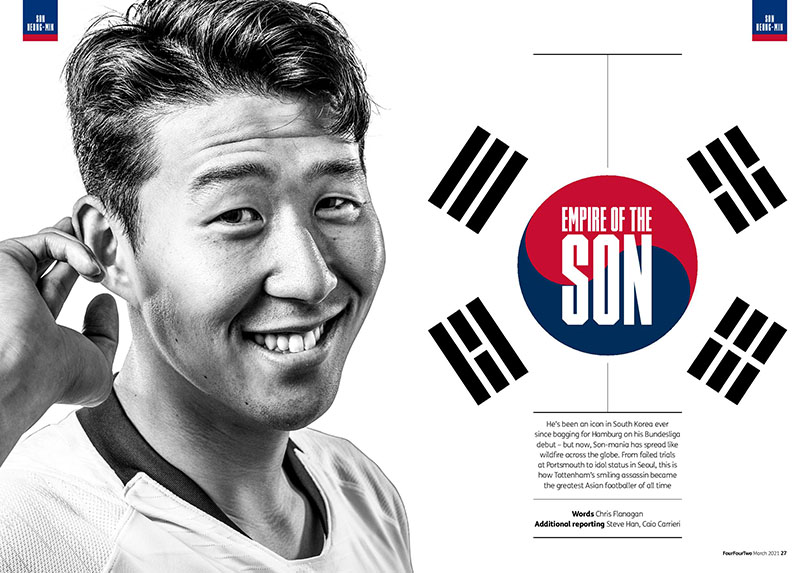
The man who saved Mourinho
The extended season meant that Son was able to finish the Premier League campaign after all. With four matches to go Spurs sat 10th, behind Arsenal, after an underwhelming start to Mourinho’s tenure. At home to the Gunners, they trailed 1-0 when Son scored to turn the game back in their favour. Tottenham won, climbed above their arch rivals and eventually finished sixth, rescuing a European place. For the second year in a row, Son was named as Spurs’ player of the season.
“That goal against Arsenal turned the mood,” says Lee. “I would say that Son saved Mourinho’s career as a manager. In Jose’s first season, Spurs weren’t good enough – there were even stories that he might be fired. If he failed at Tottenham, where would he go?”
Appreciative of Son’s performances, Mourinho had even approved of the fighting spirit the South Korean showed in a blazing half-time row with Hugo Lloris, during a match against Everton. With Son’s help, the 2020-21 campaign started positively. Spurs topped the Premier League table in November and December, while his January goal at home to Brentford – his 101st for the club – fired them to the League Cup final, one step from their first trophy since 2008. It was Son’s 16th goal this season, just five short of his best tally for an entire term.
His ability to shoot with either foot has proved ever more useful, too – statistics recently showed that over the past five years, he has scored a higher percentage of goals with his weak foot than any of the other leading marksmen in the Premier League.
Assists have also been frequent: 14 by the end of February, as his lethal combination with Harry Kane reached new levels. Kane set up all four of Son’s goals in a September romp at Southampton, with Mourinho’s counter-attacking style allowing the striker to drop deep and find his South Korean team-mate with through-balls. After 17 league games this season, the duo had already combined for 13 goals – matching the Premier League record for a whole campaign, held by Alan Shearer and Chris Sutton since 1994-95.
What a hit from Son Heung-Min 😍Kane and Son chalk up another goal combination as Spurs take the lead in the North London derby.Watch live on Sky Sports PL 📺pic.twitter.com/dQbmqVOk5DDecember 6, 2020
“Their link-up has been ridiculous,” says former team-mate Mason, who is now an academy coach at Spurs. “When you’ve got Harry and Sonny in your team, you can beat anyone in world football – they are that good. Sonny has scored some incredible goals this season where you just think, ‘Wow’. It’s his speed and the quality of his execution.”
He’s one of the Premier League’s standout players on the field, and a military award winner off it – so is there anything that Son can’t do?
“He’s not a good cook,” chuckles Wimmer. “Another time, we went to South Korea with Kyle Walker and Ben Davies, and did some media stuff. We had to cook a South Korean dish, then they judged who did it best. I’m not a good chef, and I beat him!”
Son is also yet to master cricket, a favourite pastime for the Spurs squad these days. “I tried to hit the ball, but Joe Hart threw it so hard!” he protested. He’s not fussed about golf, either. “You hit the ball as far as you can and then search for it – that’s boring,” he mused.
Football remains the love of Son’s life, but for all his achievements, he’s yet to win a trophy at club level.
“That’s a big target – it’s a big dream for him to win something with Tottenham,” says Wimmer. “Last time I spoke to him, I said, ‘You have to appreciate that you’ve played for the last five years at the highest level, and you’ve just got better and better every year.’ But he’s still not satisfied – he doesn’t want to sit back and relax, he wants to improve even more. I really hope he wins a trophy, because I think that’s the only thing missing.”
If he does, it will further cement his status as the best Asian player of all time. “I don’t think South Korea will have another player like Son for the next 100 years,” says Won Chang-yeon, the friend who dodged his shots when they trained together almost 15 years ago.
Won knew how good Son Heung-min was from the start. Now, the whole world does too.
Additional reporting Steve Han, Caio Carrieri
Subscribe to FourFourTwo today and save over a third this Mother's Day. All the exclusive interviews, long reads, quizzes and more but for less.
READ MORE
FEATURE Gianfranco Zola: How the Chelsea legend weaved his magic as English football watched in awe
OPINION What if Gareth Bale and Dele Alli were good, after all?
QUIZ Can you name every club Gareth Bale has ever scored against?
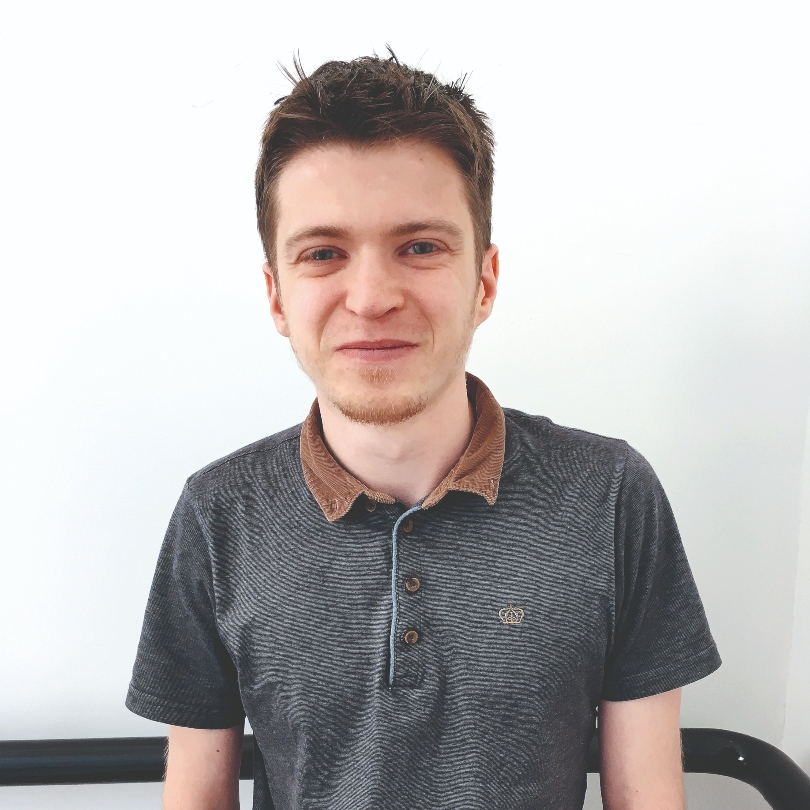
Chris joined FourFourTwo in 2015 and has reported from 20 countries, in places as varied as Jerusalem and the Arctic Circle. He's interviewed Pele, Zlatan and Santa Claus (it's a long story), as well as covering the World Cup, Euro 2020 and the Clasico. He previously spent 10 years as a newspaper journalist, and completed the 92 in 2017.
